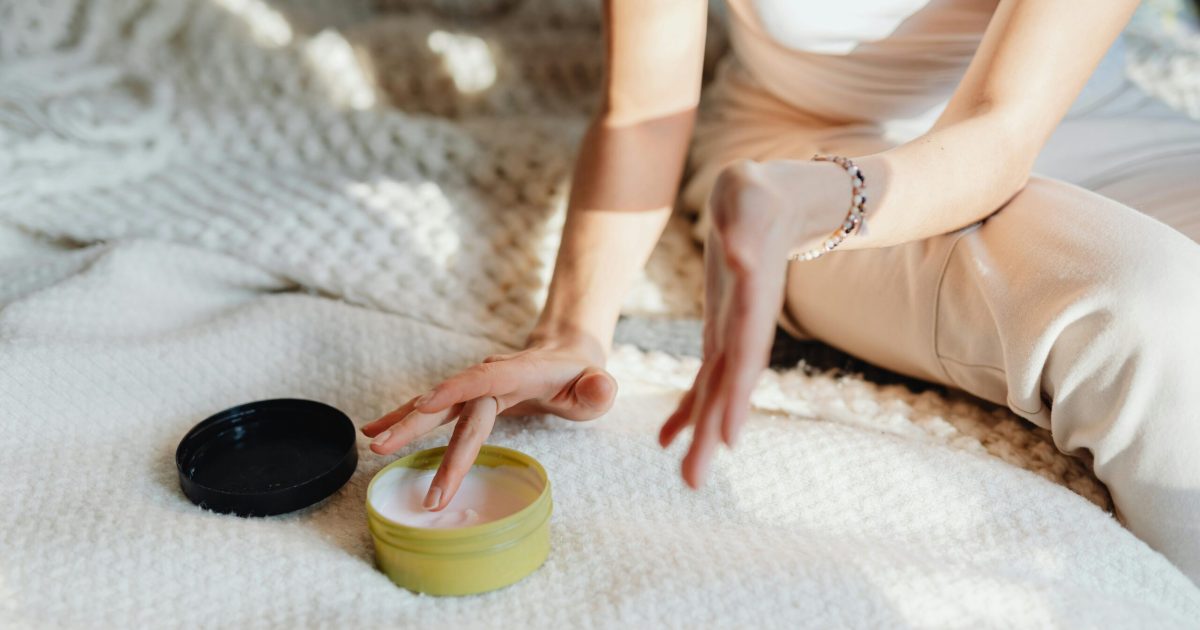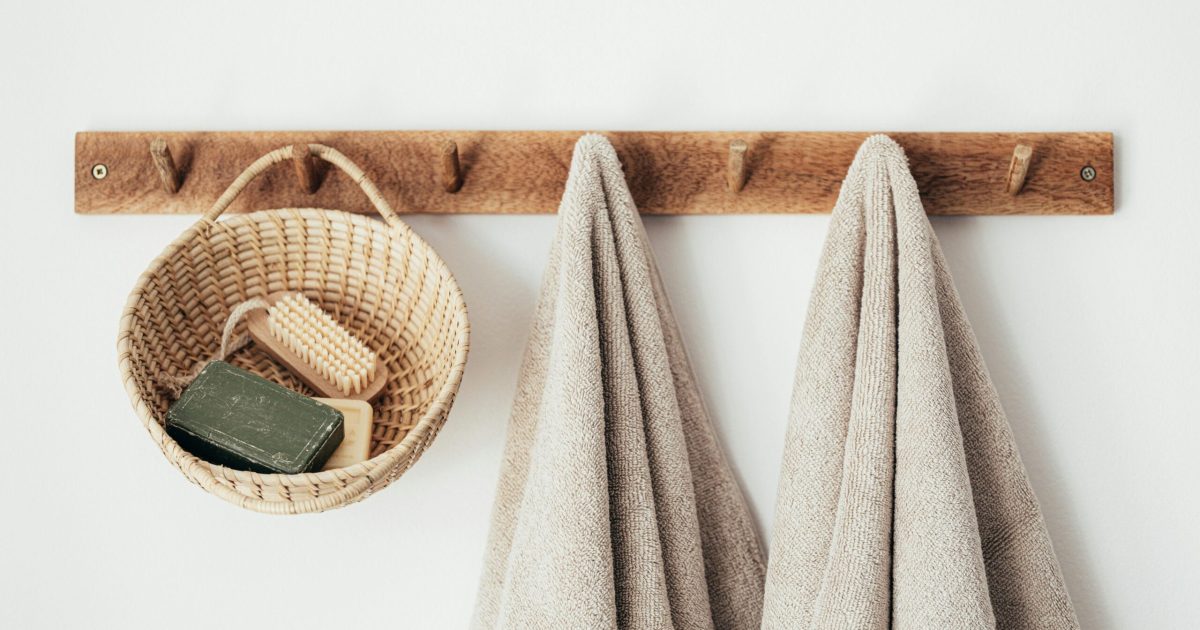In a world that constantly pushes us to do more, have more, and be more, self-care can sometimes feel like just another task on an endless to-do list. You’ve probably seen those elaborate self-care routines: 10-step skincare regimens, hour-long meditation sessions, luxurious spa days, and wondered “Do I really need all this to take care of myself?”
The answer? Absolutely not. Self-care doesn’t have to be complicated, time-consuming, or expensive. In fact, the most effective self-care often comes from simplifying, not adding more to your plate.
This is where minimalist self-care comes in – a way to nurture yourself without the stress of maintaining an overwhelming routine. It’s about stripping self-care down to its essentials and focusing only on what truly brings you peace, rest, and joy.
Table of Contents
Why I Chose a Minimalist Approach to Self-Care
I used to get caught up in extensive self-care routines, and while I don’t deny their benefits, I’ve learned that self-care is ultimately about convenience and sustainability. If you have the time, money, and desire to go beyond the basics, that’s great. But for most of us, constantly juggling responsibilities, a minimalist approach is far more practical.
That doesn’t mean I’ve never indulged in elaborate routines. I used to enjoy them, and yes, they worked. But as life got busier, my priorities shifted. I started valuing time, energy, and money differently, and that’s when I transitioned to a more minimalist self-care approach. And so far? It’s been one of the best changes I’ve made.
So, welcome to your guide to minimalist self-care – where we’ll explore how simplifying your routine can bring you the peace and well-being you’ve been searching for.
The Core Principles of Minimalist Self-Care

(i) Quality Over Quantity
Minimalist self-care means focusing on what truly matters instead of spreading yourself thin. This applies to everything:
- Skincare: A few high-quality products > a dozen random ones
- Relationships: A few deep, meaningful connections > many surface-level ones
- Time: A handful of fulfilling activities > a packed schedule with little joy
- Practices: Choose 2-3 daily habits that make the biggest difference in how you feel
(ii) Intentional Choices
Before adding any new self-care practice, ask yourself:
- Does this genuinely make me feel better?
- Is this sustainable in my current life?
- Am I doing this because I want to, or because I feel pressured to?
(iii) Simplicity in Practice
The best self-care routines are often the simplest. They don’t require expensive equipment, complicated schedules, or perfect conditions. They work in real life, not just in theory.
Practical Steps to Minimalist Self-Care

1. Start with a Self-Care Audit
Take a week to notice your current self-care habits. Which ones actually energize you? Which feel like obligations? Be ruthlessly honest. That face mask you never really enjoyed? It’s okay to let it go.
2. Design a Minimalist Morning Routine
Mornings set the tone for your entire day. Instead of cramming in every “successful person” habit you’ve read about, choose 1-2 practices that genuinely help you start your day well:
- Five minutes of quiet time with your coffee
- A quick yoga stretch
- Writing one page in your journal
That’s it. No pressure to meditate, exercise, journal, and make a green smoothie all before 6 AM.
3. Declutter Your Space = Declutter Your Mind
A messy environment often creates mental clutter too. A minimalist approach to self-care starts with clearing out the excess.
- Keep only what adds value or joy to your space.
- Create a calming, clutter-free corner where you can unwind.
- Clear surfaces of unnecessary items.
- Make your bed each morning—a simple act of self-respect.
- Consider a meditation pillow or an essential oil diffuser to enhance your relaxation space.
The goal isn’t to have an empty space but to make room for peace.
4. Simplify Your Daily Routine

If your self-care feels like a chore, it’s time to reassess. Minimalist self-care means removing the pressure to do everything and focusing on a few things that truly make a difference.
- Instead of a 10-step skincare routine, simplify it with just a few essentials that work for you.
- Rather than forcing an hour-long workout, do short, effective movement that feels good—like stretching, walking, or dancing.
- If meditation feels too structured, try mindful moments—pausing to take deep breaths, appreciating your coffee, or enjoying a few silent minutes before bed.
Self-care should feel refreshing, not exhausting.
5. Prioritize Rest Without Guilt
Modern culture glorifies productivity, but true self-care includes allowing yourself to rest—without guilt.
- Sleep isn’t a luxury; it’s essential. Prioritize getting enough rest.
- Take breaks without justification. You don’t need a reason to rest other than the fact that you deserve it.
- Use a white noise machine or a sunrise alarm clock to improve sleep quality.
Sometimes, self-care is as simple as:
- Taking three deep breaths
- Drinking a glass of water
- Going to bed 15 minutes earlier
6. Reduce Digital Noise
Our minds are overloaded with notifications, social media, and endless content. A minimalist self-care routine includes intentional digital detoxing.
- Unfollow accounts that drain you or make you feel inadequate.
- Limit screen time: set boundaries on social media and scrolling habits.
- Enjoy tech-free moments – like a morning without checking your phone or an evening without screens.
7. Find Joy in Simple Pleasures
True self-care doesn’t require luxury spa days or expensive getaways. Some of the most fulfilling moments come from the simplest joys:
- Drinking tea in silence.
- Watching the sunrise.
- Reading a book without distractions.
- Taking a slow walk in nature.
- Listening to music that soothes your soul.
When you remove the excess, you start appreciating the little things so much more.
Final Thoughts
Minimalist self-care is about subtracting the unnecessary so you can focus on what truly matters. It’s about choosing peace over perfection, simplicity over excess, and ease over obligation.
If self-care has felt overwhelming, stressful, or like another task to check off, it’s time to strip it down to the essentials. Because sometimes, the best way to take care of yourself is simply by doing less.
And in that beautiful space of less, you might just find everything you need.
FAQs:
What exactly is minimalist self-care?
Minimalist self-care is an approach to personal wellness that focuses on simplicity and effectiveness rather than elaborate routines. It emphasizes quality over quantity.
How is minimalist self-care different from regular self-care?
While traditional self-care often involves multiple steps and extensive routines, minimalist self-care strips away the excess to focus on core practices that truly matter. It’s more sustainable, cost-effective, and time-efficient, emphasizing simple daily habits over complex regimens.
Can minimalist self-care be effective if I’m used to elaborate routines?
Yes, minimalist self-care can be equally or more effective than elaborate routines. By focusing on high-impact practices and eliminating unnecessary steps, you may actually experience better results while saving time, money, and energy.
Is minimalist self-care just about doing less?
While minimalist self-care does involve reducing unnecessary practices, it’s more about being intentional with what you choose to keep. The focus is on quality and impact rather than quantity.
Can minimalist self-care help with anxiety and stress?
Yes, minimalist self-care can be particularly effective for managing anxiety and stress because it removes the pressure of maintaining complex routines. The focus on simplicity and intentional practices can help create a more peaceful, balanced state of mind.
